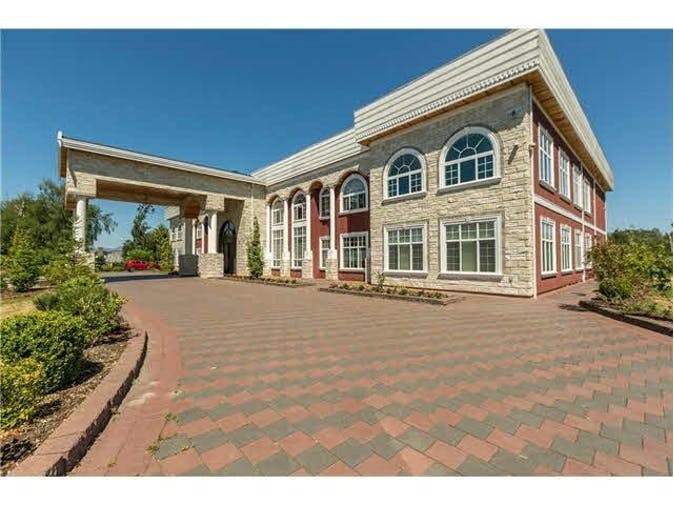Coun. Harold Steves says a report by the Vancouver Sun of apparent illegal activity occurring in a mega mansion on Richmond farmland is symptomatic of the “worst attack” on local agriculture since the 1973 establishment of the Agricultural Land Reserve (ALR).
A failure, said Steves, in provincial and municipal policy to restrict home sizes, a lack of foreign home buyers’ tax on ALR land in Metro Vancouver and continued market pressures to convert farmland into industrial properties have combined to make farming in the region economically unviable.
Homes over 10,000-square-feet, and several over 20,000-square-feet, have been regularly built for the past decade in Richmond’s ALR. Steves contends farming is last on many new owners’ minds.
Last week, the Sun reported on a civil forfeiture action filed June 29 in B.C. Supreme Court that alleges a Richmond ALR property, at 8880 Sidaway Road, “is an instrument and proceeds of unlawful activity,” and “has been used to engage in crimes,” including “laundering the proceeds of unlawful activity.”
The claim by The B.C. Civil Forfeiture Office exposes alleged nefarious activity and shines a light on serious loopholes in real estate regulations that propel speculation.
Defendant Wen Feng purchased the two-acre property in October 2015 for $4.4 million, but is only listed as the nominee. The beneficial owner is said to be her brother and co-defendent Lap San Peter Pang.
Feng’s response says that she leased the property to a group called the Vancouver International Chinese Association, with the understanding this was a group formed by Chinese business people “to facilitate networking and international business” and they would use the property “to hold functions and meetings.”
Feng’s Vancouver lawyer did not respond to Postmedia’s request for comment on the case, and no response has been filed by Lap San Peter Pang.
It was in December 2015 that the B.C. Lottery Corporation was informed the mansion, which is now listed for close to $6 million, was operating as an illegal casino, the B.C. Civil Forfeiture Office claim alleges.
In April 2016, Richmond RCMP entered the mansion in response to an anonymous call, the claim states, “that someone was being held hostage at gunpoint inside the residence.”
Police found gaming tables and 15 people involved in gambling, a large amount of casino chips, playing cards, a money counter, and “an elaborate video surveillance system,” mounted above the gambling tables, the claim alleges.
Next, in May 2017, police responded to reports of a person admitted to Richmond Hospital who had been stabbed at the property, the claim alleges. Inside the mansion, police found “25 individuals, dancing and drinking” and “blood soaked paper towels in a kitchen garbage can.”
The claim states Pang was living in only one room equipped with a small hotplate, according to police.
Steves said the court filings were a “shocker” and to date he had only been told rumours of illegal hotels and casinos operating in mega mansions.
Last April, Steves argued to limit house sizes on farmland to about 5,000-square-feet — per non-enforceable provincial guidelines — but city council proceeded to set limits of close to 11,000-square-feet.
Realtor Dale Badh was the home’s listing agent in 2015 and recently opposed council’s new restrictions, instead arguing that the City of Richmond and police ought to take long-standing complaints — such as his own — about illegal hotels, casinos and brothels more seriously.
“When a house is vacant in daytime and it comes alive in the evening, you know there’s something there,” Badh told The News on Tuesday.
Badh, an east Richmond resident, said South Asian farmers requiring multi-generational homes have unfairly been caught in the crosshairs.
Badh opposed blanket house size restrictions that would effectively curtail farmland owners’ soaring land values.
According to an independent ALR market report to council last April by Site Economics Ltd., if house sizes were restricted to about 4,000-square-feet, “it is expected that ALR buying activity and speculation would decrease significantly, as the unique appeal of the ALR lands would be gone...”
The report noted Richmond farmland is being sold at $641,991 an acre on average. Viable farmland should cost about $50,000, according to agriculture experts.
Steves said the recent listing of 13240 Steveston Highway, a 103-acre plot of farmland, for $55 million is indicative of runaway land values. The listing cites improved highway access as a benefit to ownership.



